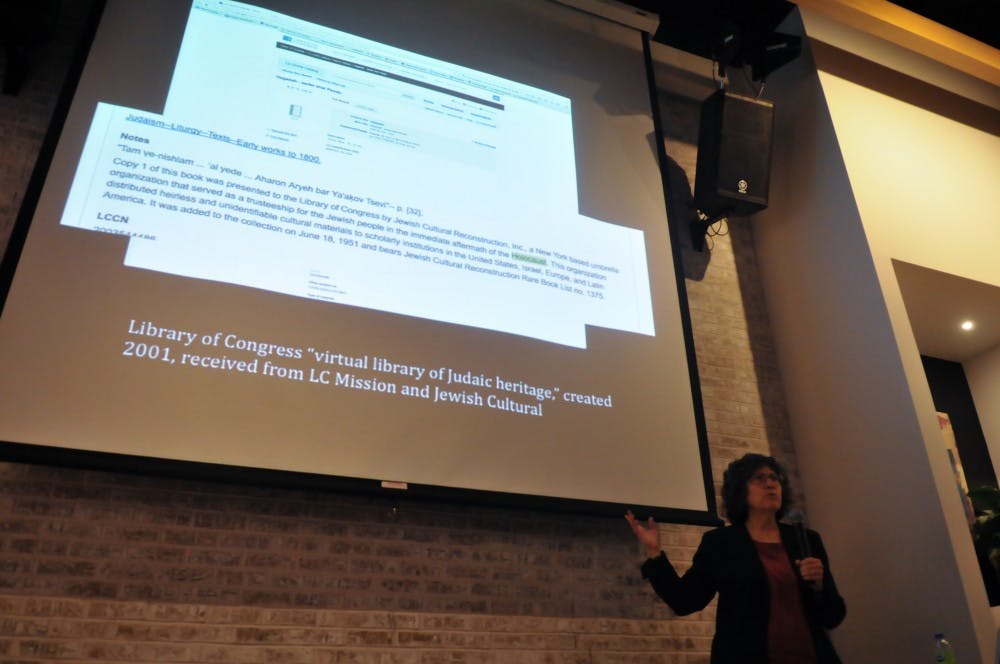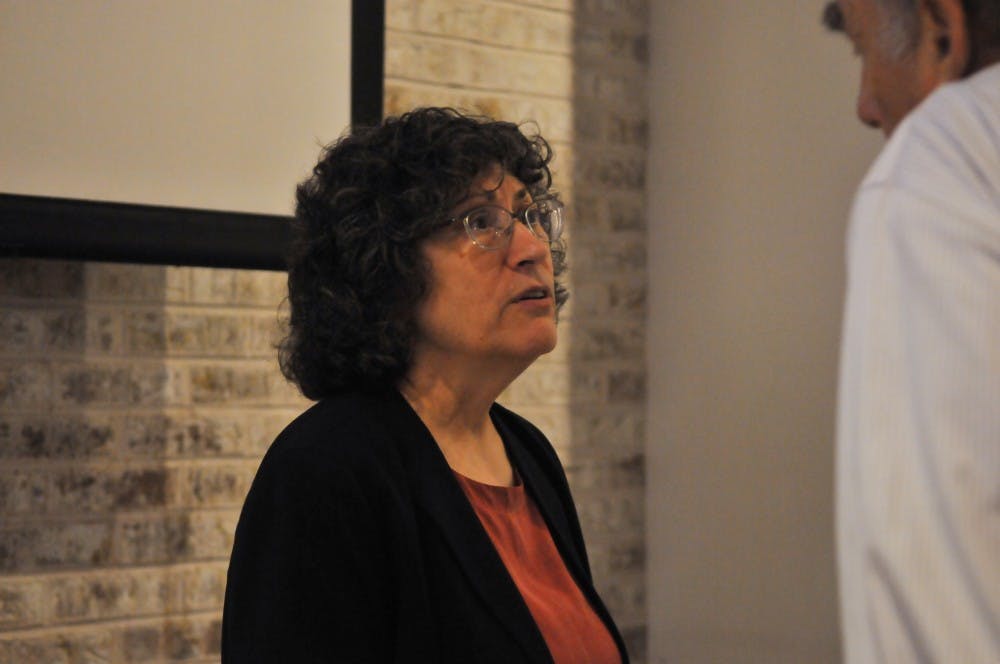
Dozens of people gathered in the Wilma Theater in downtown Philadelphia Tuesday night to hear Penn history professor Kathy Peiss trace the journeys of books associated with the Holocaust.
In her talk entitled "Looted Jewish Books, Nazi Collections, and Their American Afterlives," Peiss chronicled the paths of different pieces of literature tied to the Nazi regime after the end of World War II. She primarily focused on two types of books: those with Nazi-related content and those that the regime stole from European Jews.
Peiss’s presentation is the apex of a years-long research project exploring the fates of both Nazi literature and stolen Jewish literature. She added that several undergraduate students from the Penn Undergraduate Research Mentoring Program assisted with her research.
For the project, Peiss examined the history of around 1,400 Nazi and military-related works of literature housed in the Penn Libraries, as well as the Katz Center for Advanced Judaic Studies’ growing collection of books stolen from Jewish individuals.
The majority of her talk revolved around the fates of the books after 1945. During her presentation, Peiss explained that the stolen books wound up in the hands of a variety of owners after the war, ranging from some at Yale University to others in the former USSR, often falling out of the public eye for decades.
Peiss added that during the mid-1990s an increasing awareness of literature stolen by Nazis began to develop. She cited several reasons for this change, such as a rising consciousness of the Holocaust among the public and the emergence of the Internet, both of which made it easier to chronicle and preserve World War II and Judaic literature.

While Peiss said during the presentation that it is impossible to know the exact number of books stolen by the Nazis, the Wall Street Journal, citing Holocaust experts, reported that the regime had stolen tens of millions of books throughout its reign.
Ultimately, Peiss explained, she hopes the rediscovery of lost Jewish texts will help people to better appreciate cultural conservation.
“I hope [the public has] a greater appreciation of ordinary people involved in trying to preserve and save culture,” she said.
Noting that some members of the library community were "up in arms" about her work to also preserve Nazi texts, she said that some pieces of literature were saved for historical purposes — "to show what in fact happened during the regime of national socialism."
For Peiss, the attempts to preserve such literature stemmed in part from an uncle, a librarian who also took part in these efforts.
"Learning about his story is what led me to this entire seemingly endless research project," she explained.
For the members of the audience, Peiss's talk was informative and useful.
Philadelphia resident Susan DeYoung said she was initially unfamiliar with the Nazi looting of literature, but that she had learned a lot from the presentation. Steve Greenberg, 1982 Wharton graduate, noted that Peiss's efforts could have real-world significance, particularly in firmly disproving the conspiracies of Holocaust deniers.
The Daily Pennsylvanian is an independent, student-run newspaper. Please consider making a donation to support the coverage that shapes the University. Your generosity ensures a future of strong journalism at Penn.
Donate






